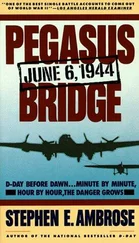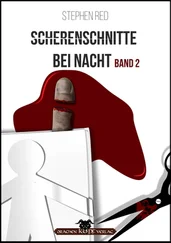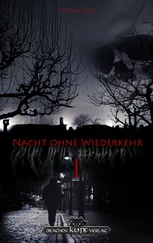Stephen Ambrose - Band of Brothers
Здесь есть возможность читать онлайн «Stephen Ambrose - Band of Brothers» весь текст электронной книги совершенно бесплатно (целиком полную версию без сокращений). В некоторых случаях можно слушать аудио, скачать через торрент в формате fb2 и присутствует краткое содержание. Жанр: История, на английском языке. Описание произведения, (предисловие) а так же отзывы посетителей доступны на портале библиотеки ЛибКат.
- Название:Band of Brothers
- Автор:
- Жанр:
- Год:неизвестен
- ISBN:нет данных
- Рейтинг книги:4 / 5. Голосов: 1
-
Избранное:Добавить в избранное
- Отзывы:
-
Ваша оценка:
- 80
- 1
- 2
- 3
- 4
- 5
Band of Brothers: краткое содержание, описание и аннотация
Предлагаем к чтению аннотацию, описание, краткое содержание или предисловие (зависит от того, что написал сам автор книги «Band of Brothers»). Если вы не нашли необходимую информацию о книге — напишите в комментариях, мы постараемся отыскать её.
Band of Brothers — читать онлайн бесплатно полную книгу (весь текст) целиком
Ниже представлен текст книги, разбитый по страницам. Система сохранения места последней прочитанной страницы, позволяет с удобством читать онлайн бесплатно книгу «Band of Brothers», без необходимости каждый раз заново искать на чём Вы остановились. Поставьте закладку, и сможете в любой момент перейти на страницу, на которой закончили чтение.
Интервал:
Закладка:
Mountain weather, unlimited sports, women and booze, easy duty, good hunting and a hard-assed colonel whom everyone loved, Zell am See provided, in Webster's view, "the soldier's dream life."
It should have been the most perfect summer ever for the men of E Company. In fact, after the first couple of weeks, most of them hated it. They were frustrated by the Army bureaucracy, they were bored, they were drinking far too much, and they wanted to go home.
Getting home depended on points, which became virtually the sole topic of conversation and led to much bad feeling. The point system set up by the Army gave a man points for each active duty service month, points for campaigns, points for medals, points for being married. The magic number was 85 points. Those with that many or more were eligible for immediate shipment home and discharge. Those with fewer points were doomed to stay with the division, presumably right on through to the Big Jump in China or Japan.
So for the first time in their Army careers, the officers and men became seriously concerned with medals. A Bronze Star was worth five points. Inevitably the Army's hierarchical and bureaucratic systems played favorites. Lieutenant Foley recalled "the regimental adjutant who picked up a Bronze Star for—according to rumor—selecting the Hotel Zell for Sink's HQ."
The men of Easy felt cheated in another way: in the paratroopers it had been damn near impossible to win a medal other than the Purple Heart. "In the 101st, for example," Webster wrote, "only two men had been awarded the Medal of Honor— a private and a lieutenant colonel from the 502—and they had both been killed in action. Major Winters, who had acquired it legitimately in a fracas with a German battery in Normandy, wore the only Distinguished Service Cross in the 2nd Battalion. In E Company, Captain Speirs and two or three others had 100-proof Silver Stars and about twelve men displayed Bronze Stars. Of Purple Hearts there were aplenty, but that was not a decoration but a badge of office: Infantry."
Most of the men in E Company had for decorations only the four battle stars on their ETO ribbon, no more than a personnel clerk who had never left base camp. "There was MacClung, for instance," Webster complained. "He was quiet, lanky, and unimpressive, and nobody noticed him. But his buddies in the third platoon swore that old One Lung had killed more Germans than any other man in the Battalion. MacClung could smell Kraut; he hunted them,- he pursued them in dawn attacks and on night patrols; he went out of his way to kill them; he took more chances and volunteered for more dangerous jobs than any other man in E Company. MacClung had made every day of Normandy, Holland, and Bastogne, and what did he have to show for it? An ETO ribbon and four battle stars."
Sgt. Shifty Powers was in the same category. As good a soldier as there was in the 101st, he had no medals, no Purple Heart, so not enough points. But the grumbling had grown to such proportions that General Taylor decided to have a drawing in each company,- the winner would be rotated home. Powers did not want to attend the drawing. "Hell, Paul," he told Sergeant Rogers, "I've never won anything in my life." But Rogers persuaded him to go, and he won.
Immediately, another soldier offered Powers $1,000 for that trip home. Powers recalled, "I thought about that for a while, $1,000 was a lot of money, but finally I said, 'No, I think I'll just go home.' "
Powers gathered up his loot, mainly pistols, got his paperwork done, drew his back pay, and joined the ten other lucky men for a ride to Munich. Going around a curve, a G.I. truck hit their truck head on. Powers flew out and over the top of the truck, hit the pavement, broke some bones, and got a bad concussion. Another one of the "lucky" soldiers was killed. Powers went to hospital, where he lost all his back pay and souvenirs to thieves. He eventually got home via a hospital ship, months after the comrades he had left behind.
Adding to the frustration of seeing cooks and clerks get the same points as front-line infantry was the haphazard record keeping. All the men spent hours totaling up their points, but the trick was to convince the regimental adjutant's office. Webster was sure he had 87 points, but his records indicated he had fewer than 80.
General Taylor tried to help his veterans. He decreed that every man who had taken part in Normandy, Holland, and Belgium, or who had made two of those campaigns and missed a third because of wounds, would receive a Bronze Star. This was widely appreciated, of course, but temporarily caused more frustration because it took weeks after Taylor's announcement before the medal and citation—and with them the all-important five points—actually came through.
All this chicken stuff created intense dissatisfaction with the Army and its ways. Recruiters were circulating among the officers and men, trying to persuade them to join the Regular Army. Almost none did. Webster articulated the feelings of most of his fellow soldiers: "I hate this army with a vehemence so deep and undying I'll never speak good of it as long as I live," he wrote his parents. "I consider my time spent in the army as 90% wasted." The only thing that he would concede was "I did learn how to get along with people." When Sink offered Winters a Regular commission, Winters thought about it for a moment or two, and then said he would rather not.
Adding to the problems of frustration and anger caused by the point system was the combination of too much liquor, too many pistols, and too many captured vehicles. Road accidents were almost as dangerous to the 101st in Austria as the German Army had been in Belgium. In the first three weeks in Austria, there were seventy wrecks, more in the six weeks of June and July. Twenty men were killed, nearly 100 injured.
One night Sgt. Robert Marsh was driving Pvt. John Janovec back from a roadblock by a side road. Janovec was leaning on the unreliable door of a German truck. They hit a log. He lost his balance, fell, and hit his head on the pavement. Marsh rushed him to the regimental aid station in Zell am See, but he died on the way of a fractured skull. Captain Speirs gathered up his few personal possessions, a watch, his wings, his wallet, and his parachute scarf, and mailed them to Janovec's parents. "He had come a long way," Webster wrote. "He had jumped in Holland and fought in Bastogne. He hated the army, and now, when the war is over and the golden prospect of home was in sight, he had died."
Marsh had not been drinking. Easy Company was proud of its record with regard to mounting guard duty or manning roadblocks with sober, responsible soldiers, and in not driving drunk. Others were not so careful. Private O'Keefe recalled the night he was at a roadblock with Pvt. Lloyd Guy halfway between Saal-felden and Zell am See. "An open German staff car came barreling down the road, not prepared to stop. Guy and I jumped out in front of it and made them stop. There were two men dressed in German uniforms, both drunk. 'What the hell you stopping us for? We're on your side.'
"They were a couple of our paratroopers, but from some other company. We told them, 'Damn it, you could have got your heads blown off!'
"They finally promised to slow down on the driving. We told them the next guard post was about ten miles up the road, to keep an eye out for it, and to slow down to a crawl. They promised to take it easy.
"But when we got back we learned that those two damn fools had barreled right through Welling's post with Welling out yelling, 'Halt! Halt!' After the third 'Halt!' Welling took one shot and hit the driver." Later Welling visited the wounded man in the hospital; he said he had no hard feelings toward Welling, that he would have done the same thing.
Sgt. "Chuck" Grant, an original Toccoa man, was a smiling, athletic, fair-haired Californian who was universally respected— he had knocked out an 88 in Holland—and liked. One night he was driving a couple of privates to a roadblock for a changing of the guard. As they arrived, they saw a commotion.
Читать дальшеИнтервал:
Закладка:
Похожие книги на «Band of Brothers»
Представляем Вашему вниманию похожие книги на «Band of Brothers» списком для выбора. Мы отобрали схожую по названию и смыслу литературу в надежде предоставить читателям больше вариантов отыскать новые, интересные, ещё непрочитанные произведения.
Обсуждение, отзывы о книге «Band of Brothers» и просто собственные мнения читателей. Оставьте ваши комментарии, напишите, что Вы думаете о произведении, его смысле или главных героях. Укажите что конкретно понравилось, а что нет, и почему Вы так считаете.



![Stephen Ambrose - Citizen Soldiers [Condensed]](/books/346737/stephen-ambrose-citizen-soldiers-condensed-thumb.webp)
![Stephan Orth - Behind Putin's Curtain - Friendships and Misadventures Inside Russia [aka Couchsurfing in Russia]](/books/415210/stephan-orth-behind-putin-s-curtain-friendships-a-thumb.webp)





